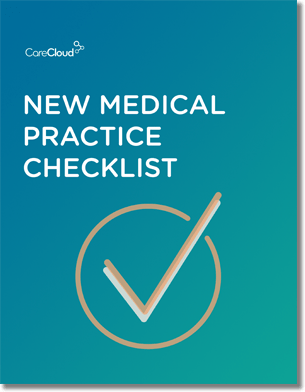In the health IT biosphere, EHR interoperability is more popular than Led Zeppelin’s 2007 London reunion concert.
Hence, it was the focus of discussion at this year’s HIMSS Conference in New Orleans and is considered the main criteria for Meaningful Use stage 2 attestation.
Interoperability refers to the architecture or standards that make it possible for different EHR systems to exchange information between providers. It allows for better workflows, reduced ambiguity, and improves the quality of care by making the right data available at the right time to the right doctor.
However, due to a lack of collaboration between suppliers, true EHR interoperability is far from fruition.
Why Is It Important?
Without complete and seamless interoperability, the great promise of electronic health records, meant to enable patients, lead to better-coordinated care, and lower healthcare costs, will never be achieved.
Even if every medical practice in the country were to switch over to an EHR, the uses for patient information would be very limited if it couldn’t be easily accessed by different physicians.
This is why the Department of Health and Human Services has made interoperability one of the most important requirements that hospitals and physicians must meet as they prepare their systems for attestation in Meaningful Use Stage 2.
Dr. Farzad Mostashari, the National Coordinator for Health Information Technology at the U.S. Department of Health and Human Services, said the agency wants to ensure that, ”information follows the patient regardless of geographic, organizational, or vendor boundaries.”
At the moment, though, government interoperability criteria still far exceed the capabilities of most providers today.
“I want there to be no question about the seriousness of our intent on this issue. [The] bottom line is it’s what’s right for the patient and it’s what we have to do as a country to get to better healthcare and lower costs,” Dr. Mostashari added.
It’s Complicated
So why is interoperability so difficult? The fragmentation among vendors, for one.
The industry is controlled by a handful of relatively large companies with EHR systems aimed at specialized providers. Some accommodate to large hospital groups while others to small physician practices.
By helping the smaller players, interoperability is a direct threat to the larger companies’ business models. There aren’t many businesses that want to facilitate their customer’s ability to look for services at another company.
Large hospital systems and physician practices have their own motives for idling on interoperability as well. Allowing access to all medical records through a health information exchange makes it easier for patients to transfer records and care instructions to other providers.
Government Intervention
Even though the U.S. has already spent more than half the $22.5 billion earmarked for automating medical records, there has been painfully slow progress in creating a manageable, interoperable system that works for patients and doctors.
The government could, however, facilitate the process by creating a performance standard for interoperability. The payment system would be simple: If your system plays well with others, you get paid. Otherwise, you don’t.
In an attempt to address the issue, the federally funded Direct Project allows for secure communication of encrypted health data among health care participants over the Internet. Although still in its infancy, this pilot program is gaining traction from providers across the U.S.
If you’re in the market for a new EHR, make sure to ask potential vendors about their interoperability capabilities looking forward. You don’t want to be stuck with a silo system that can’t transfer data and doesn’t help you attest to Meaningful Use Stage 2.
Shopping for a new EHR? Check out our Definitive EHR Buying Guide.

Do you know what you need when setting up a new medical practice?


